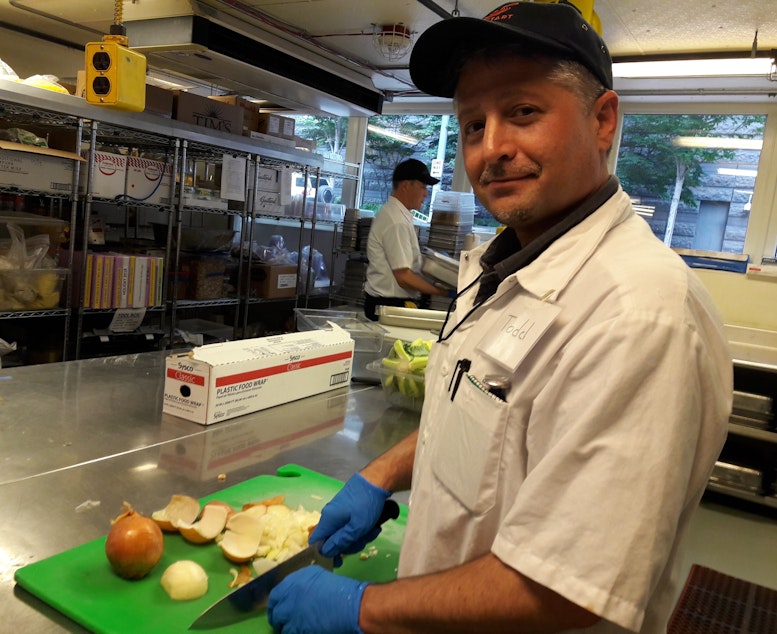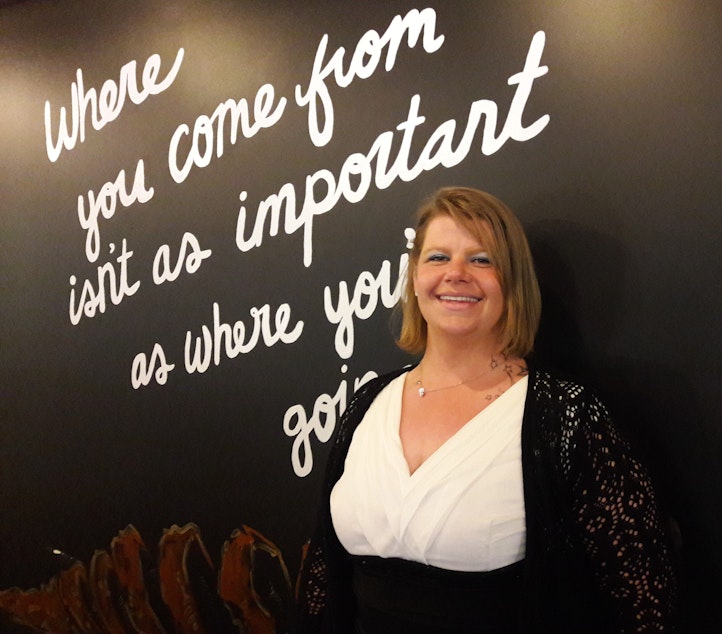This Seattle culinary program helps people get out of homelessness

The next time you’re at a Seattle restaurant, the person cooking your food could be a graduate of FareStart, a non-profit that provides food service training for people trying to get out of homelessness.
For years Todd McGee worked in technology and for startups. He was able to ride out the economic crisis in 2008 by using his savings. But when he tried to get back into the job market, he struggled. He was isolated.
“Anxiety and depression is something I’ve struggled with for the last 20 years and it caught up with me two years ago,” McGee said.
With no income and without a home, McGee found himself drifting.
“It was like a washing machine out of balance,” he said. “I couldn’t keep those plates anymore; everything just started falling apart.”
All he could focus on was finding food and a place to stay for the night.
Sponsored
“It’s exhausting,” he said.
About seven weeks ago, McGee joined FareStart’s Adult Culinary Program. He’s training to be a prep cook. He said through the program, he’s learning more than kitchen skills.
“I’ve been learning really how to focus on a task and not be distracted by other students and thoughts from the past,” he said.
FareStart’s 16-week program trains adults for the food industry. It also works with partners that provide housing, transportation and counseling so students can focus on training.
Spokesperson Stephanie Schoo said more than half of the people who sign up with the program complete it and 90% of those who graduate get a job.
Sponsored
“Six months later, more than 80 percent still have that job,” she said.
Those food service jobs range from supermarkets to fine dining restaurants. Last year FareStart trained more than 345 people through its various programs.

Sarah Nelson recently graduated from the program. Soon she’ll be starting at a Seattle catering company.
Sponsored
“It’s kind of bittersweet. This place has been amazing, but I’m ready for my next chapter,” she said.
Nelson’s past drug addiction led to many losses: jobs, a home and custody of her children. She spent three years in prison and has just finished three years of work release.
Nelson said FareStart’s program provided more than job skills, it changed her outlook in life.
“I had such low self-esteem that I always put myself in these situations where I just wanted to be loved. But I didn’t realize that that love was in me all along, and just to love myself,” she said.
Nelson said trying to survive on the streets was hard, but the toughest part was dealing with the stigma.
Sponsored
“People see you and they’re going to make an instant judgment of who you are and where you’re at," she said. "Just because you’re homeless doesn’t mean that’s where you want to be.”
Nelson said people are in that situation because they have issues that haven’t been dealt with.
“Personally being judged on and looked down upon just kept me there,” she said.
For the past three months Nelson has been working and going to school. She continues to go to treatment and attends two meetings a week. What motivates her is her children, who are now 15 and eight. She said may not have custody, but she wants them to know that no matter what, she’s there for them.




